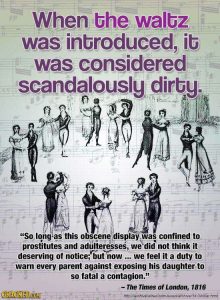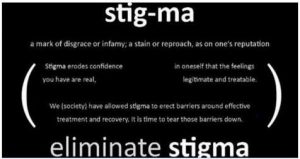“Slut shaming and misoharlotry can take different forms. Most days we don’t notice the supermarket Glamor magazine being censored, but other days can bring simmering sexism to a rolling boil.
When Brittiany Hoagland brought the Free the Nipple movement to Fort Collins opponents perpetuated rape apology, derailment and victim blaming with the most common argument being, “To have to walk by a topless woman would infringe on my right to enjoy the community.” Even elected officials, such a Council Member Ray Martinez stated, “I don’t want Fort Collins to be a strip club, I want there to be a strip club somewhere else.” Alluding that strip clubs, and the women who work there, somehow taint the “family friendly” atmosphere of Fort Collins is nothing more than slut shaming and misoharlotry rolled into one. Yet, it was an effective block to the equal rights of women, LGBTQIA and girls as young as 10 years old in 2015.”
Ms. Brittiany Urban Hoagland.

Slut-shaming is not a modern-day concept. The story The Scarlet Letter by Nicholas Hawthorne is quite well known. The main character commits adultery and is forced to wear a scarlet “A” on her breast, so her sins are apparent to the rest of the world. In present day, society no longer visibly brands women for their sexual deviance, however the stigma attached to them is no less subtle. Women, men, and transgendered individuals who enter the sex industry, whether through pornography, exotic dancing, escort services or prostitution, must endure the labels and rumors that are subsequently attached to them. They often manage the stigma by hiding their role in the industry from friends, family and strangers (Wesely, 2003)
Ms. Billie McIntire, M.A., Executive Director of the Social Wellness Advocacy Network (SWAN) Colorado, a Colorado non-profit dedicated to human rights anti-trafficking work, speaks often on the subject of misoharlotry and hatred of people who have been in the commercial sex industry or experienced human trafficking. “It is indeed sexualized violence when people react with disdain or violence to people who have performed sex work. I have been accused of soliciting people at religious events and of having AIDS or going to transmit it to children.” A former exotic dancer and survivor of human trafficking, Billie indicated that the verbalized violence she felt from interactions with society was equally as harmful to her as sexualized violence she experienced in the club. Feeling marginalized, or less of a moral human being than someone else is extremely detrimental to an individual’s confidence. No one deserved to be treated as a lesser person because of her forced choice of work.
Ms. Allison Timm, UCD Student, former SWAN Intern

Misoharlotry.
I’ve only recently run across that word. It’s hard to find any explanation of it or even a basic definition of it. It must have some linguistic relationship to words like misogyny, misandry. I’m reminded that people internalize sexism and racism.
Anti-trafficking has a deep seated and pervasive hatred of the sex industry. Survivors often loathe those people and conditions which forced them there, and can be quite traumatically triggered by reminders of that experience. Many did not willingly choose to work there, and had to survive situational terror by reminding themselves that they are *not prostitutes/whores/sex workers. A safe psychological distance is created in dissociating from what doesn’t feel like “self.” But that creates problems when it takes full bloom as an internalized and outward hatred of people who *don’t have shame or trauma associated with being those things or in those situations. Sadly, the people who *don’t have shame or trauma *continue to be denied basic rights of safety protection and voice within the movement and by the law.
The word “misoharlotry” is a big one and will take some time to work it’s way into the common lexicon. Another closely related word is “whorephobia”. This one resonates with me because I see some in sex worker rights joining in solidarity under the hashtag “whorenation” and I always wonder they don’t realize how distancing that hashtag has the potential to be. Yet, from a certain perspective, it’s empowering to these people who are deliberately excluded from the larger discussion.
Anonymous
Please visit The Whore Word Poster for a fitting poem by Norma Jean Almodovar on the use of the word Whore.
Sources:
Our authors want to hear from you! Click to leave a comment
Related Posts



Being a slut isn’t shameful, It is OK for people to not want their children to see overtly sexual things. Can I walk down Main Street with my penis out, masturbating while using a dildo on the other end and singing the Star Spangled Banner? Even you will draw a line somewhere.
So only women’s breasts are overtly sexual not mens. I get it. Your description of masturbating in public is different than women having equal rights. Luckily, Mx. Brit has a lawsuit filed and will likely defeat this sexist ban.